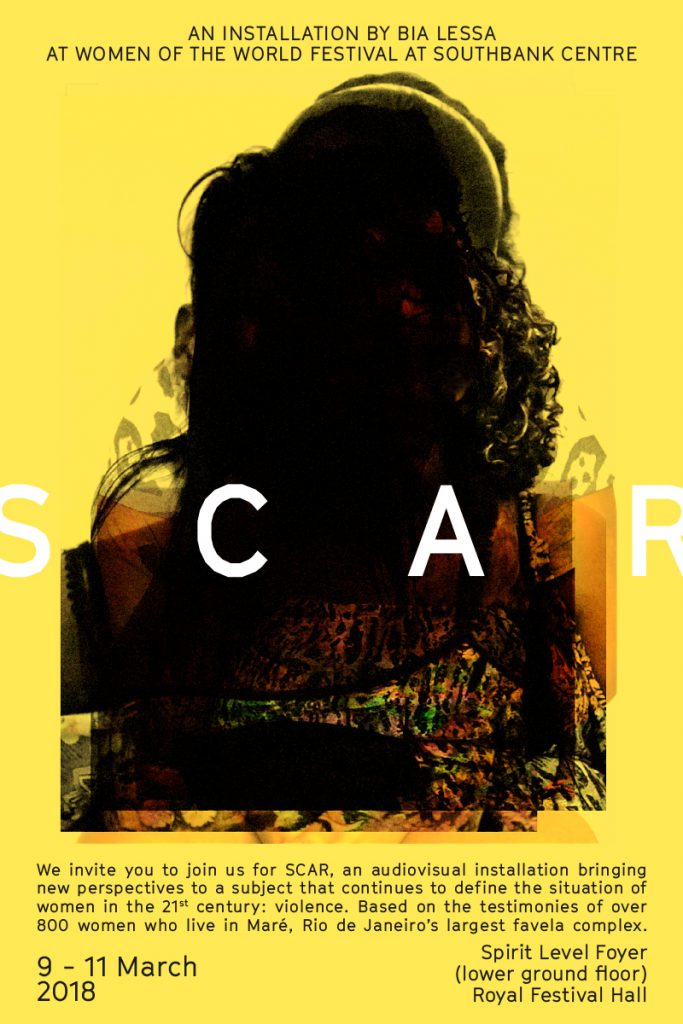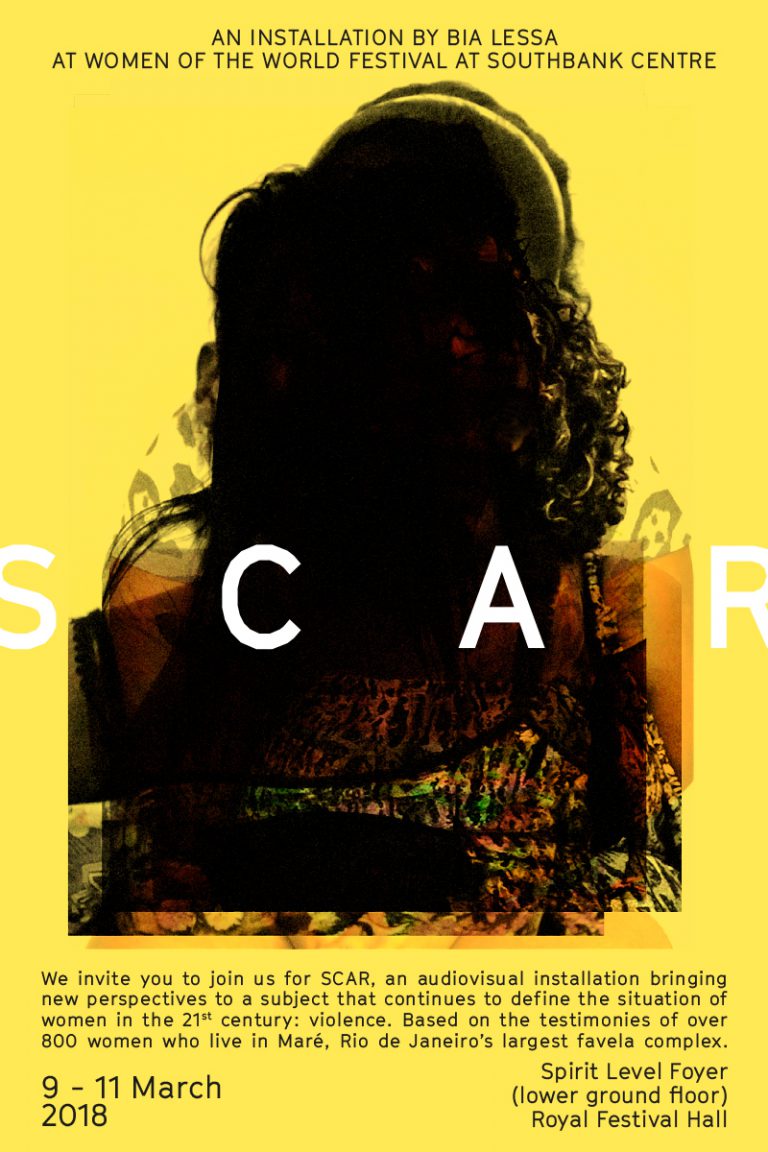We invite you to join us for SCAR, an audiovisual installation bringing new perspectives to a subject that continues to define the situation of women in the 21st century: violence. Based on a research with over 800 women who live in Maré, Rio de Janeiro’s largest favela complex, Scar was created by genre-defining Brazilian artist Bia Lessa.
Scar presents the stories of 20 women from Rio de Janeiro both as unique individuals and as part of a collective expression of resistance. We invite you to meet women who took part in this project as well as the key members of its research and artistic teams, at the Spirit Level Foyer (lower ground floor, Royal Festival Hall) at Southbank Centre for a tour of the installation on the dates: 9th March at 12.40pm, 10th March at 2.30pm or 11th March at 4.10pm.
The installation is also open to the public from 9th to 11th, 10am to 6pm. Free entrance.
About the project
For four months in 2017, a Brazilian research team led by Eliana Silva (director of community-based organisation Redes da Maré/ Maré Development Networks and WOW Rio de Janeiro Programmer) and Miriam Krenzinger (Federal University of Rio de Janeiro) collected witness statements from women who live in Maré – a complex of 16 different communities with nearly 140,000 residents. This forms part of a larger research project led by Cathy Mcllwaine (King’s College London) Paul Heritage (Queen Mary University of London) that explores the nature of Violence Against Women and Girls among Brazilian women in London and women in Mare, Rio de Janeiro.
The installation is produced by People’s Palace Projects and presented by Southbank Centre and Women of the World Festival as part of a research collaboration with King’s College London, Queen Mary University of London, Redes da Maré, Federal University of Rio de Janeiro (UFRJ), the Latin American Women’s Rights Service (LAWRS) and CASA Festival, with funding from the Economic and Social Research Council and the Newton Fund. The Newton Fund promotes the economic development and social welfare of partnering countries. For more information visit: www.newtonfund.ac.uk

